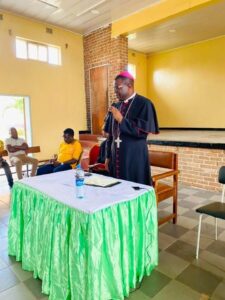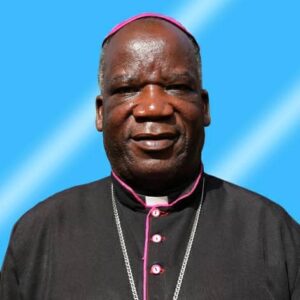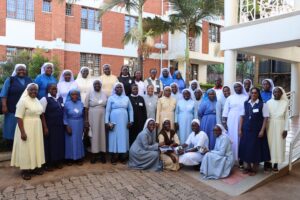AMECEA: Integral Human Department Conduct Workshop in TEC, Discusses Laudato Si Implementation
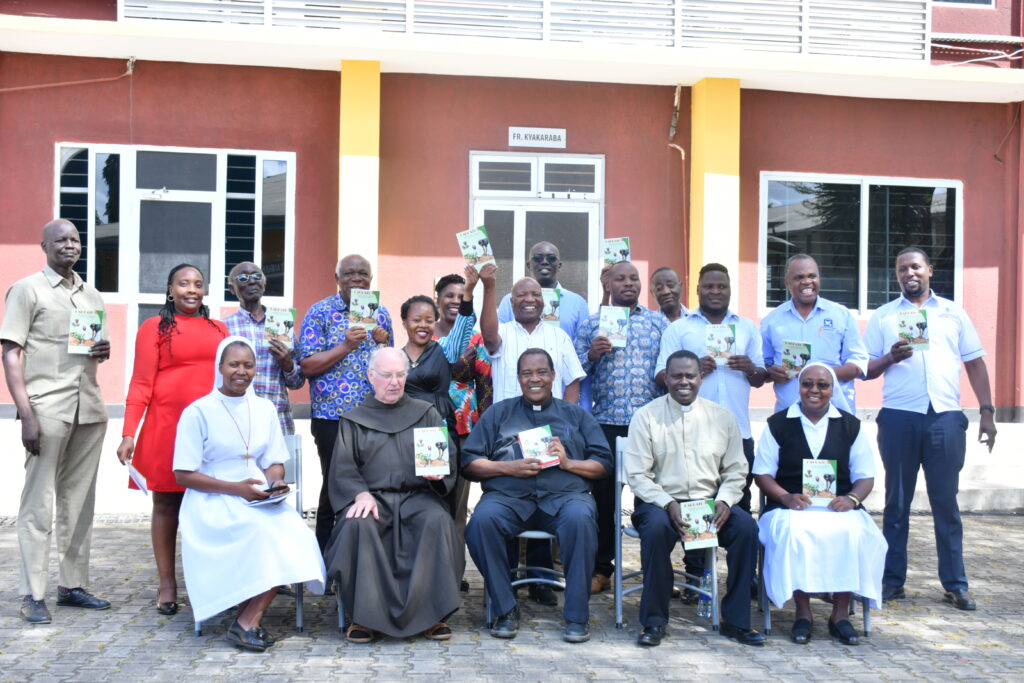
Group Photo of the Participants during the meeting at TEC Kurasini Center
By Dalphina Rubyema
The Association of Member Episcopal Conference in Eastern Africa (AMECEA) has held a workshop in which, among other things, participants had an opportunity to discuss various issues related to the Bishops Resolutions on Environmental Protection ‘Laudato Si’ and finally to develop joint strategies on the implementation.
The workshop which was hosted by the Tanzania Episcopal Conference (TEC) and involved Justice and Peace Commission Directors (JPCD) and Caritas Coordinators from the conferences including the host Tanzania, Kenya, Uganda, Malawi, Zambia, South Sudan, and Zimbabwe.
Explaining the objectives of the Workshop, the Coordinator for Promotion Integral Human Development (PIHD) at AMECEA, Fr. Paul Igweta, said the workshop was to bring together participants to discuss how to implement Laudato Si’ resolutions addressed by AMECEA Bishops during the 20th AMECEA Plenary Assembly held in Dar es Salaam, Tanzania last year.
He asked participants during the workshop to share what has been bone in their conferences as part of the implementation of the resolutions, the challenges, general assessment, and come up with joint strategies to further achieve the implementation.
“In their resolutions, the Fathers of AMECEA promised to take the responsibility of the pastor to protect their believers and those with goodwill, by fulfilling their duty as bishops individually or collectively, to respond to the cry of the earth and the cry of poor people by using existing natural resources for the benefit of current and future generations,” Fr. Igweta said.
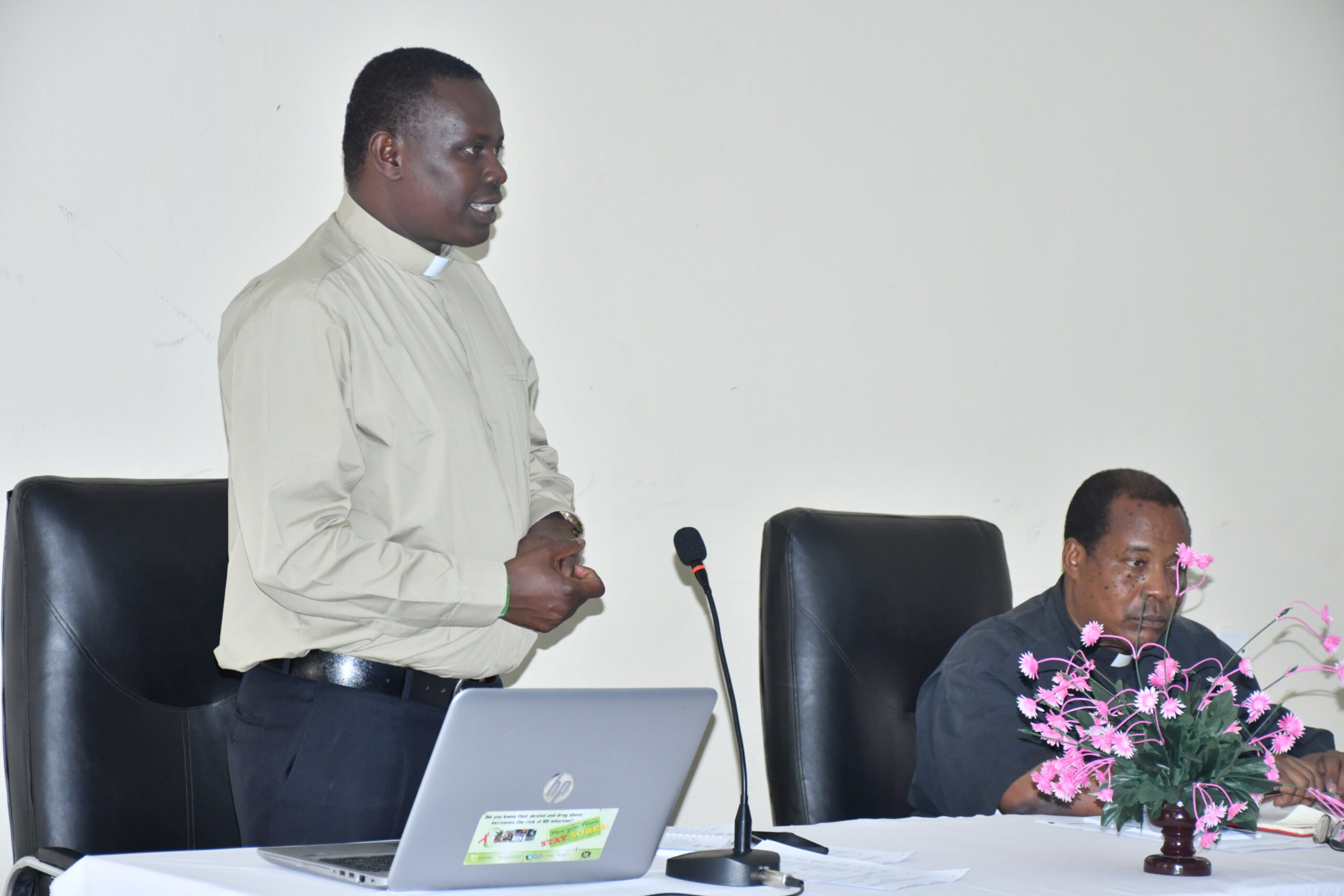
According to Fr. Igweta, these principles must be guided by human dignity, common good of all humanity, environmental stewardship, conservation, simplicity, participation in the rule of law, and ecological conversation.
In his opening speech, the TEC Secretary General Fr. Charles Kitima, asked the participants to use their professions and talents to carry out the duties of Bishops in the region to protect the environment by taking into consideration that with their position and duties, they are directly representative and ambassadors of the bishops.
Fr. Kitima however, insisted that participants should consider the values of the Catholic Church in conveying the message to the community.
“Distinguish yourself from other groups… you are representatives of the Church, so your voice and methodologies should wear the values of the Catholic Church…avoid using the methods of activists,” he emphasized and encouraged participants to involve multi-stakeholders starting from the lower levels by giving them an opportunity to share their opinions and decisions.
“In the implementation of Laudato Si, indigenous knowledge is important… so it is necessary to involve community members at all levels communities… we should not leave them aside by ignoring their ideas, if we do that, in the end, we will fail to achieve targeted goals,” he said.
Mr. Benard Mberere, the project officer at the AMECEA secretariat shared feedback on the research conducted in the region in relation to the Implementation of Laudato Si saying that the research was conducted in various social groups including religious leaders, justice and peace coordinators, small Christian communities and youth, results of which showed that only 40% in the region had an idea on Laudato Si.
However, he said that some areas in various countries have made great efforts to implement Laudato Si, by planting mangrove trees around coastal areas (seas), cleaning the landfills located in residences, using renewable energy including animal gas and natural gas, hydroelectricity and solar electricity as well as establishing forest management projects.
It should be noted that in 2015 Pope Francis issued the Encyclical Laudato Si, which was officially launched at the Vatican.
